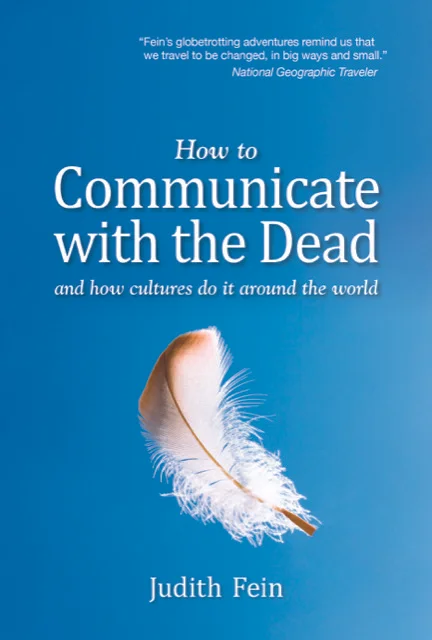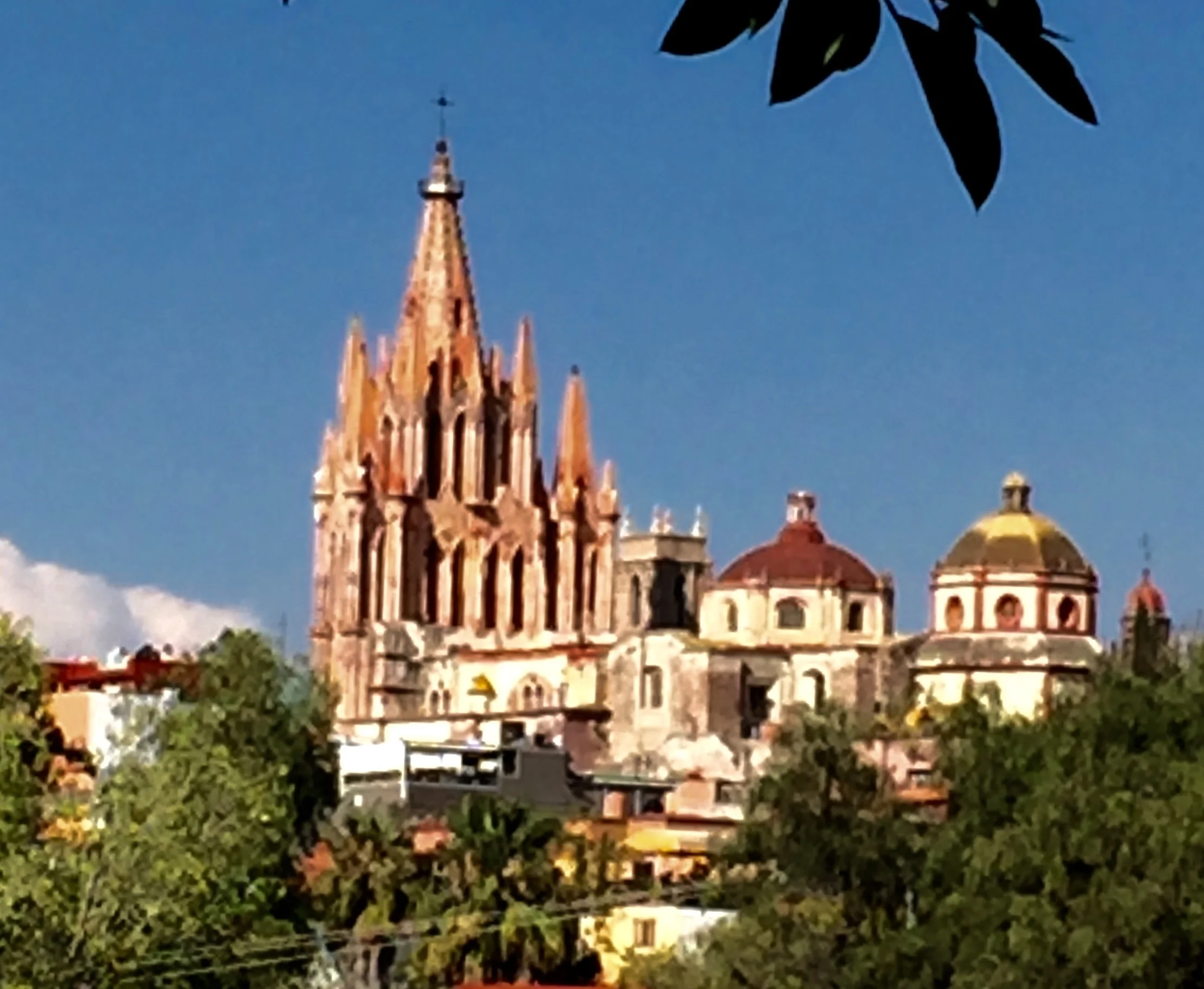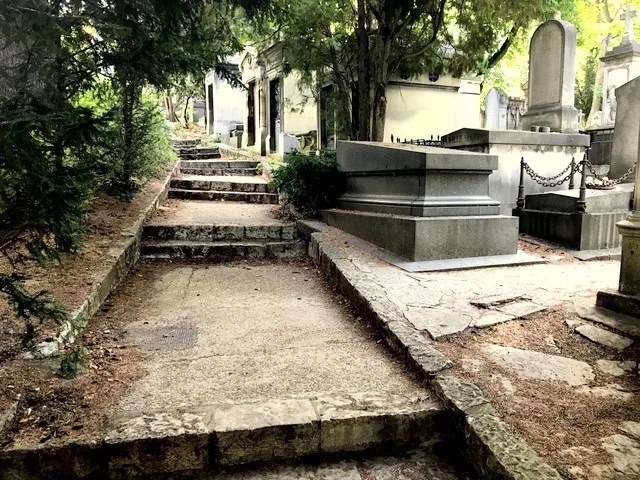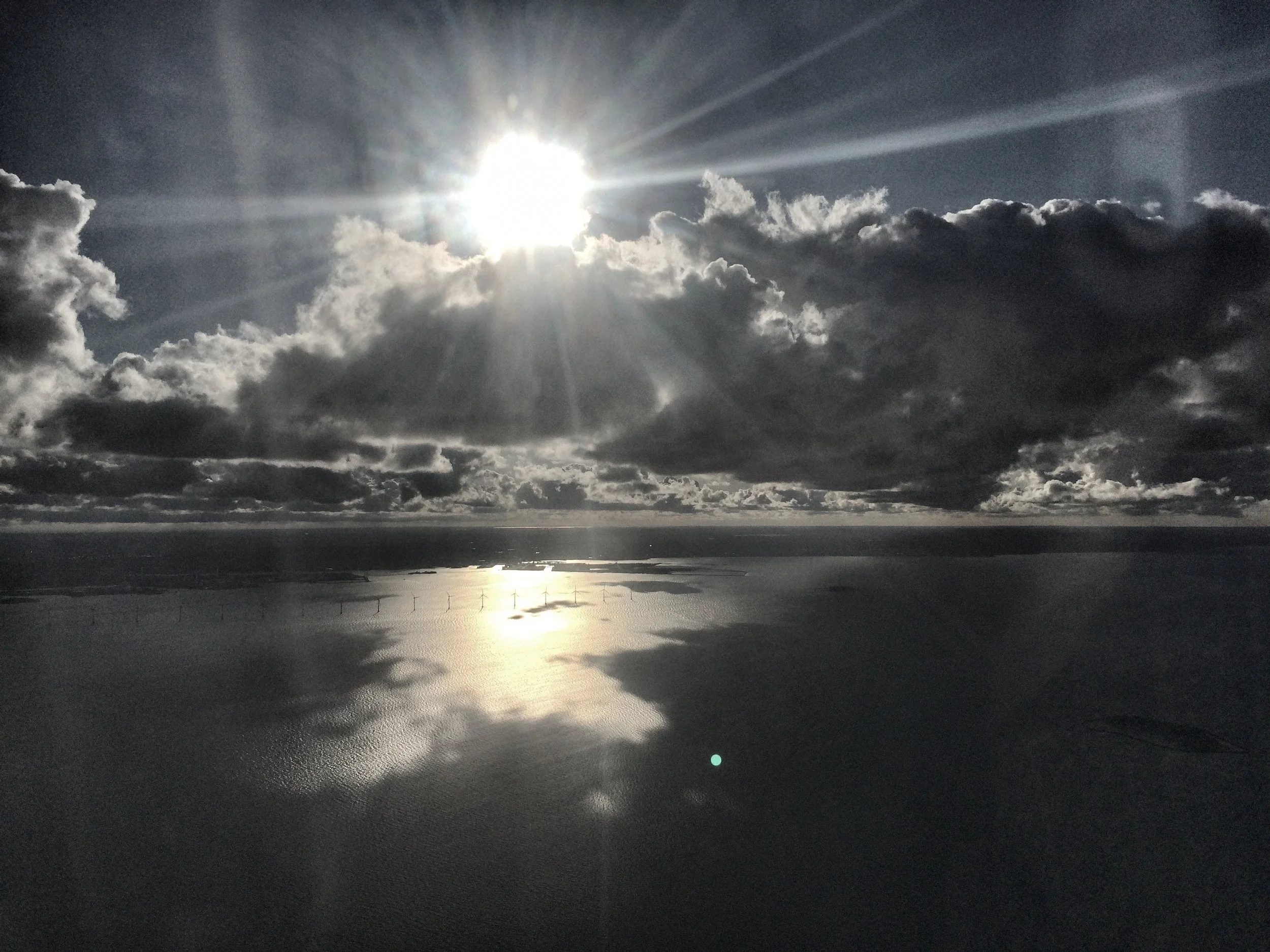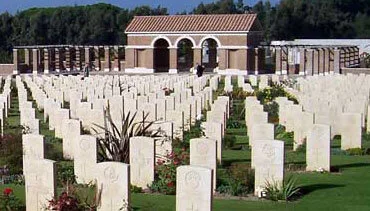As Cliff Simon approaches seventy, he sees that his face resembles that of the father who died when Cliff was fifteen. He wonders about the Polish immigrant father he never really knew, whether the feeling of being out of place in the world was inherited from him, and if his dad ever thought about such things.
All in Grief
A Zulu Healing in South Africa
This article is an excerpt from the new book, HOW TO COMMUNICATE WITH THE DEAD…and How Cultures Do It Around the World, by YourLifeisaTrip.com executive editor Judith Fein.
Finding My Mother in San Miguel de Allende
Only weeks after her mother’s passing, Laurie Gilberg Vander Velde traveled to San Miguel de Allende, Mexico, on a previously scheduled vacation. San Miguel was also the place where twenty-four years earlier her mother had sought refuge from grief and Laurie finds memories of her mother everywhere.
Lipstick Kisses, Chewing Gum and Terrorism in Paris
For expat Keith Digby, the tragedy of the French terrorist attacks turned unexpectedly personal during a visit to Père Lachaise Cemetery, Paris' best-known resting place.
Finding Peace in Sand
During a visit to the island of Key West, Florida, writer Kristine Mietzner encounters a Tibetan Buddhist ceremony involving the creation and destruction of a Sand Mandela and finds peace in a troubled relationship.
Bereavement Abroad: When the unthinkable happens and you're not there.
Ellen Barone awakened in Medellin, Colombia, to the news that her dad, who lived in Utah, had fallen and broken his hip and hand. Soon afterward, he was cleared for immediate hip surgery, and from there, things escalated—and deteriorated—quickly.
Final Journey
by Leslie Anne Wood
My cell phone rang on a Saturday afternoon and the news was not good. My father had collapsed at his retirement home and had been taken to the hospital.
A Funeral in the Philippines
by BJ Stolbov
Maria Natividad Pascua Olivar has died. Nanay Mary (Mother Mary), as she was known, was 76 years old. Her husband, Ruben Olivar died suddenly 36 years ago, leaving Nanay a single mother with six young children. Her eldest, Rowell, died when he was hit by a car at 6 years old. Her next eldest, Ronaldo died suddenly of a heart attack 9 months ago at the age of 50. With her four surviving children, two daughters and two sons, all now in the 40’s, around her bed, and after a long sickness, a confluence of incurable old-age illnesses, Nanay Mary breathed her last. She died peacefully.
The Risks of Time Travel in Santa Fe
by Elyn Aviva
We punched in the entry code on the keypad on the side of the looming concrete storage building, opened the door, and walked down the empty, darkened corridors to our numbered unit. We unlocked the roll-up metal door and pushed it up, revealing a colorful hodgepodge of items stacked along the walls and piled on metal shelving units in the center. We were entering a mysterious domain, a mixture of refuse dump and Treasure Island.
This was the stuff we had left behind six years ago in Santa Fe, New Mexico, when my husband, Gary, and I moved to Spain. Now that were happily settled as expats in Girona, Catalonia, Spain, the time had come to clear out the storage unit. No more excuses.
I used to be an extrovert.
Now, I consider myself an introvert with some extrovert added to the mix. I have a hearing loss. One ear is deaf and the other partially deaf. I feel like I have an invisible veil separating me from others.
Two years ago, after struggling to hear with friends, travelers, servers, family, salespeople,I checked into getting hearing aids. Each time, I felt frustration as technicians told me: “they should work.” They did not work for me. It began a path towards partial isolation and frustration.
I visited specialists at Kaiser, my medical group After test results, my doctor said, “You have a brain tumor which has damaged your auditory nerve."
“Hearing aids won’t help.”
“What?” My mind raced to thoughts of my grandfather who died of brain cancer. The doctor continued, “Good news: it is not cancer. Bad news: Permanent hearing loss with residual symptoms.”
EDITOR'S NOTE: This is a continuation of an ongoing series of insights and dispatches from Egyptian contributor Manal S. Kelig, a devoted mother, wife, tour operator, and peace promoter living in Cairo, Egypt. Our hearts go out to Manal and the people of Egypt during this difficult period.
by Manal S. Kelig
For the past 2 years Egyptians found themselves regularly facing heart-breaking choices!
When the revolution took place on 25 Jan 2011, I was not in a status to rejoice or condemn. Just one day earlier my late father had to undergo a serious operation as he was diagnosed with colon cancer.
 Celebrations in Tahrir Square after Omar Soliman's statement that concerns Mubarak's resignation. February 11, 2011 via Wikipedia CCL
Celebrations in Tahrir Square after Omar Soliman's statement that concerns Mubarak's resignation. February 11, 2011 via Wikipedia CCL
For the next two weeks we were having our own stressful events where the hospital we were in was attacked by thugs. Doctors and nurses could not come to work. Medical supplies were not delivered to the hospital. As we ran out of options and danger continued, we were forced to check out of the hospital with my father in this critical condition and have him home nursed by my sister who has no medical background except her amateur medical readings. As his condition declined, taking my father to a chemo session was over 7 hours ordeal in Cairo traffic that was continuously blocked by demonstrations and sit-ins. In April 2011 my father passed away.
While our lives were made hard due to the unstable political conditions, and as I had some friends celebrate the revolution and others dam it, I realized no matter what I have gone through I will not point fingers at any of them and blame them on what we had to face.
Our family like many others was a casual victim of the events. When we were attacked in the hospital we were not defending a cause, or chose to go in a confrontation. It was just our fate.
I knew very well many other Egyptians in different ways would be in that position in the coming period.
A New Egypt with No Leader
For the past 12 years I have regularly said in my lectures, “ No one knows what will happen when Mubarak dies, but I can predict there will be no wide acceptance of his son to take over and the different opposition parties will make sure it does not happen, but hopefully without violence. “
Then came the 2011 revolution, and like the other uprisings in Arab countries, it was driven by the dissatisfaction and anger of a new generation who formed over 60 % of Egypt’s population.
But the energy of 2011's revolutionaries was squashed by the power and organization of the already established forces in Egypt, particularly the earlier Supreme Council of the Armed Forces, the 80 years old Moslem Brotherhood movement and some remnants of the Mubarak regime.
The Doors (And Not The Ones You Think)
by Richard Rossner
“There’s a disturbance in the Force.” - Obi-Wan Kenobi
My uncle died today. As soon as I heard the news, I felt the depth of Obi-Wan’s statement. It’s been happening a lot lately. My mother died last June.
The journey of a lifetime
Peter T. Lucas, 1931-2012
There’s never enough time.
My hero lay in bed for his final journey, the trip we all take to who-knows-where. I sat beside him and took his hand for the last time. His palm was dry from a day of heat and sweat, now cool to the touch. His breaths thrust out in fierce exhalations, little drawn back in return. This is called Cheyne-Stokes breathing. It comes very near the end.
His nurses had promised he could hear us, so I told him everything that mattered—how he saved my life and shaped its meaning, how what he stood for was living in us and would pass on to those coming still, even those just born. I’d make sure of that.
Meeting the Buddha in Sedona
story + photos by Suzanne Marriott
My husband was lying in the hospital bed, dying. It wasn’t as if I should be surprised—he had been in and out of hospitals many times that year, suffering from complications of multiple sclerosis. Yet, I was. I was in shock.
I had been his caregiver for the last ten years, and now, at the time of his death on January 1, 2006, I couldn’t stop. I still had to take care of him. Less than a minute after he drew his last breath, I began reading a Tibetan Phowa, or prayer, to Amatabha Buddha to guide Michael’s transition. It was a long and beautiful poem that guided him as he experienced the stages of death and the many levels of transition. Amitabha is a Sanskrit word that literally means boundless light and boundless life. He is the Buddha in the Land of Ultimate Bliss (Pure Land), in which all beings enjoy unbounded happiness. He can provide a “short cut” to enlightenment. By reading this phowa, I felt still connected to Michael, still able to care for him.
Nearly six years after my husband’s death, I hardly expected to meet Amatabha Buddha again in Sedona, Arizona, and this was not the only surprising thing that happened there.
by Gwen Davis
 Mimi was a Bichon Frise, a little puffy white dog of inspiring intelligence and charm. The placing of her ashes in a young coconut, and sending her to sea off Bali, where I have come to live since her shocking departure,-- it is the one place we had not traveled together since dogs were not allowed,-- had to be postponed until the day of the full moon, which is now, because when you do ceremony in Bali it has to be at an auspicious time, or the souls do not rejoice as they should. At least, I think that’s the reason. There’s so much mystery and superstition around Bali that one cannot be quite sure. You just have to leave your heart open and see what happens. At any rate, I do.
Mimi was a Bichon Frise, a little puffy white dog of inspiring intelligence and charm. The placing of her ashes in a young coconut, and sending her to sea off Bali, where I have come to live since her shocking departure,-- it is the one place we had not traveled together since dogs were not allowed,-- had to be postponed until the day of the full moon, which is now, because when you do ceremony in Bali it has to be at an auspicious time, or the souls do not rejoice as they should. At least, I think that’s the reason. There’s so much mystery and superstition around Bali that one cannot be quite sure. You just have to leave your heart open and see what happens. At any rate, I do.
So Mimi, whose last great earthly journey was to Bali in my suitcase, in a little flower-printed metal box from Hartsdale pet cemetery where she was cremated, got taken to the beach at Canggu, because that is where you are allowed to do your ceremonies. Yoni, my darling driver, came today bearing five little baskets woven from palm, with tiny flowers and petals in them, and we went there, pausing for her to light the incense, and scatter a few of the petals.
New Life in the Yucatan
words + photos by Suzanne Marriott
When my husband, Michael, died on January 1st, 2006, I felt as if I had died, too. The light went out of my life. It was as if I were a candle and he were the flame, and his last breath had blown out that flame and left me alone in the dark. 
Yet, for some reason unfathomable to me, my life went on, though I saw no reason why it should. No longer able to make sense of my world, I began to rely more and more on my intuition.
A little over a year after his death, in March of 2007, I was sitting on my living room couch, reading my copy of Spirituality&Health magazine. Suddenly, an announcement for a workshop on travel writing jumped off the page. I’d always loved to write and to travel, and here was a way I could do both. The workshop was to be held in the beautiful but “undiscovered” southern Yucatan peninsula in Mexico near Belize. There was no reason in the world why I shouldn’t go, I thought to myself. Did I dare? Did I have the energy? Probably not, I decided. This was crazy.
Ghosts of Soldiers at Anzio
My father told me about Anzio. He showed me a yellowed newspaper with heavy, black 64-point headlines from World War II. “A-N-Z-I-O. What does it mean?” I asked.
“It’s a beach in Italy,” he said. “My best friend died there in the war.”
That snippet of memory surfaced recently when my husband, Richard, and I visited Ostia, the seaside town south of Rome.
Anthony’s dead. These are the two words I hear as soon as I wake up. Anthony’s dead. If I’m not concentrating on something else, these two words creep into my mind. Sometimes I play with them. I mentally say them as a question, an exclamation, I shout them, whisper them, deny them but nothing changes, Anthony’s still dead.
 Anthony McGregorMy mother had passed away at the end of March and I thought I’d be an old hand at this funeral business. My mother was 89 and in poor health. Anthony, my younger son was 33. An accident caused the loss of a productive life. As a gerontologist he was supposed to look after me in my old age.
Anthony McGregorMy mother had passed away at the end of March and I thought I’d be an old hand at this funeral business. My mother was 89 and in poor health. Anthony, my younger son was 33. An accident caused the loss of a productive life. As a gerontologist he was supposed to look after me in my old age.
I was worried that looking for photos for the memorial would be painful. Surprisingly it was not. As a photographer I have six or seven albums of the children so my brain was kept busy as I relived the past. Together my family and I made the final cut. We remembered and laughed. There was Anthony, in the red rubber boots he loved, sitting on the potty.
I hoped if I saw Anthony the words would go away. Regardless, I had to see him one last time.

